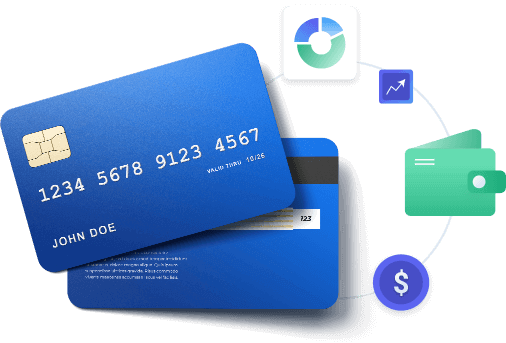For student loan debt consolidation or new undergraduate loans, examine our list of top-tier lenders, with their current student loan interest rates, to finance your education inexpensively.

All Loans

Auto Loans

Debt Consolidation Loans
Home Equity Loans

Personal Loans

Small Business Loans

Student Loans
For student loan debt consolidation or new undergraduate loans, examine our list of top-tier lenders, with their current student loan interest rates, to finance your education inexpensively.
Take advantage of these calculators to help you choose the best online money lenders.
Make informed decisions about home financing options. Calculate your ideal down payment, understand loan repayment schedules with our amortization calculator, and explore FHA loan options with ease.
$0
The investment return after 1 year is:Educate yourself about student loan options.
Complete the Free Application for Federal Student Aid, or FAFSA. After you correctly complete the FAFSA, you will receive a Student Aid Report with the federal loans available to you as well as options for free federal money like grants and work-study programs. The current student loan interest rates for Federal loans will typically be lower than private student loans. Federal loans also offer things like income-driven repayment plans and student loan forgiveness programs.
The student loan offers listed on LendMeMoney.com are private student loans which are offered by financial institutions. Federal student loans usually offer more benefits, so private student loans are typically used if you have borrowed the maximum federal loan amount, you have a co-signer who is able to get a better interest rate with a private loan, or you have multiple student loans and are seeking student loan debt consolidation.
Students who are incapable of meeting their regular payments may want to consider putting in a request for forbearance or deferment, which will give them some extra time to meet the set deadlines for their required payments. In specific circumstances, such as by means of the Teacher Student Loan Forgiveness program, a complete waive-off of the federal student loan debt is possible.
Alternatively you may decide to refinance your student loan to take advantage of lower current student loan interest rates and lower monthly payments. Be aware that if you decide to refinance a federal student loan, it no longer remains the same but is considered a private loan, and therefore does not have the benefits of a federal student loan.
Before you refinance your student loan, you should look at the various student loan repayment plans. These plans are available to students who face hardships in meeting their required payments on time. Such methods include changing your standard 10-year repayment plan to a different one, for example, an income-based one, where your payment is based on your income. The graduated plan offers you a gradual increase in your repayment schedule or the extended program, which has a longer repayment term. These repayment plans may be a better option thanrefinancing or student loan debt consolidation.
To be eligible for refinancing, you need to meet the following criteria:
Refinancing can be a good approach for reducing your costs and improving your chances of getting debt-free faster. By refinancing your student loan, you can find another loan with lower current student loan interest rates.
Yes, student loan debt consolidation is certainly possible. Students often refinance their student loans and combine them into one single loan, thus reducing their number of payments, interest rates, while also extending their term.
Repayment options vary from lender to lender. The options are typically dependent on 5, 10, or 20 years. You can use our Student Loan Calculator to determine the right repayment amount and term for you.
Yes. Like other types of loans, student loans appear on your credit report, and affect your credit scores. So, make your monthly payments on time to help your score.
With the current student loan rates and the anticipation that they may go higher every year, it's best to lock in the lowest-cost possible undergraduate loans now so that you'll not pay too much in monthly payments upon graduation. Lower the loan cost further by saving money in interest when you repay your student loan ahead of schedule.
Carefully review the featured student loan and student loan debt consolidation offerings to find the most suitable one. Compare and save money.